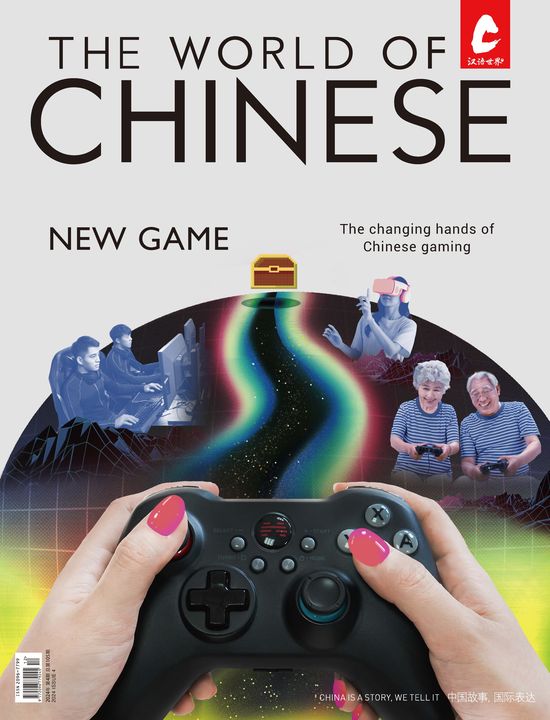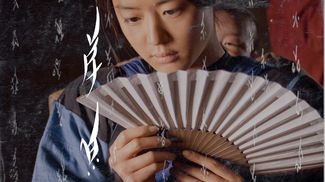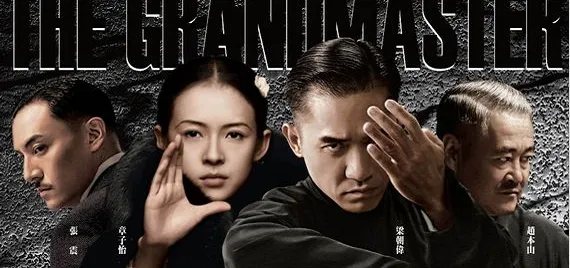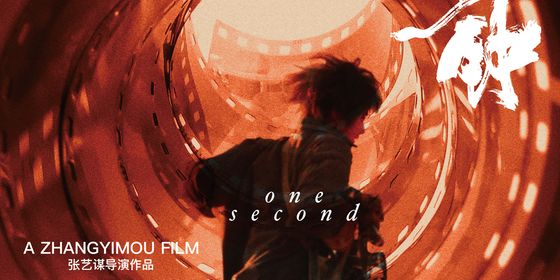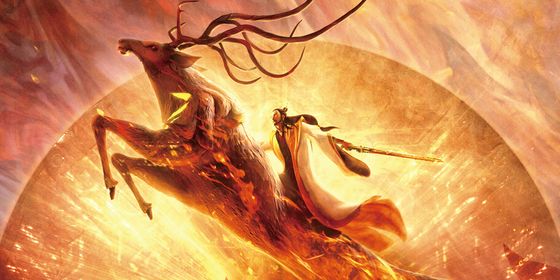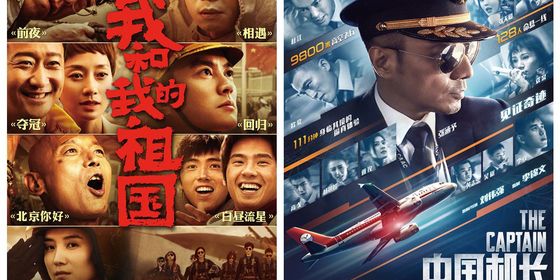Wong Kar Wai’s thrilling new visual ballet is a postmodern interpretation of the life and times of Wing Chun master Yip Man
“Don’t patronize me with your martial arts ability,” Tony Leung Chiu-Wai (梁朝伟) begins, his unnervingly calm monologue cut with interspersed shots of brawlers surrounding him in the pouring rain: “Kung fu is about two characters: floored, or standing. If you do the wrong move, you’ll be floored– flat on your back. Only those who remain standing [after a fight] have the right to speak.”
Gōngfu, liǎng gè zì: yì héng yí shù. Cuò de, dàoxià. Zhànzhe de, cái yǒu zīgé jiǎnghuà.
功夫,两个字:一横一竖。错的,倒下。站着的, 才有资格讲话。
So begins Wong Kar Wai (王家卫)’s The Grandmasters, the latest in a growing directorial fad regarding the life and times of Wing Chun kung fu master Yip Man (叶问). Beginning in the early 1930s, The Grandmasters is set against the backdrop of the Japanese invasion of Manchuria, and the Second World War—the devastating consequences of which forced many Chinese abroad, in what would come to be known as the Chinese Diaspora. However, as opposed to the epic martial arts grandeur and clear nationalist tendencies of Raymond Wong (黄英华)’s Ip Man, Wong Kar Wai’s film eschews the politicization of the legend, loping instead, between mano-a-mano action and the personal effects of war, on the main characters. While Chinese wuxia cinema has always attempted to convey a relationship between thought and movement, Wong’s directorial voice in The Grandmasters provides the necessary introspective human elements to draw the audience into his eternally-conflicted characters and their relationships with their respective martial arts.
The Grandmaster seems to humanize Wong’s subjects by showing how a lack of outwardly expressed emotion can actually be an indicator of how deeply conflicted his subjects are. Wong has traditionally written movies that explore this existentialist dynamic between characters: his movie Fallen Angels deals with the distance between two assassins and their confused and mixed emotions towards each other and In the Mood for Love languidly moves between a writer and a secretary who are neighbors, torn between fidelity to their spouses and their mutual feelings for each other In The Grandmasters, Wong also attaches sentimentality to the notion of “the old days”.
If my life could be represented by the four seasons, then life before 40 was eternally spring.
Rúguǒ rénshēng yǒu sìjì dehuà, wǒ sìshí suì zhīqián dōushì chūntiān.
如果人生有四季的话,我四十岁之 前都是春天。
Fans of Wong’s older films will fall for Phillipe Le Sourd’s heavily-juxtaposed soaring dynamism: faces doubled through grainy windows and extreme close-ups of feet striking stairs indicate Wong’s interest in never committing to an establishing shot. These individual vignettes speak volumes alone, and serve to accentuate the loneliness and internal torment that Wong wishes to portray: the demure yet radiantly beautiful Lady Yip (Song Hye Kyo) leans against a dirty window while Yip and Gong Er (Zhang Ziyi) face off across a table in a shot that seems more reminiscent of Da Vinci’s “The Last Supper” than a martial arts film.
Wong’s sets are often mere stage pieces that accentuate the mood and internal conflicts within each character: silhouettes of wrought iron gates and dimly lit carriages loom from beneath a thundering barrage of pouring rain; rococo golden pillars and wooden floors imply the majestic innards of a pleasure palace. In another such vignette, Yip Man stares out his front porch in a rickety chair, smoking a cigarette; hints of rain pattering against the blurred and unfocused grey skies.
Structurally, The Grandmasters is broken into three story arcs (much like 2046, the sequel to his highly acclaimed In the Mood for Love) focusing on one particular character. The first arc brings Yip Man into the spotlight as a consolidator and defender of the southern martial arts name and honor during his time in Foshan. He is tasked with challenging the aging northern martial arts master Gong Yutian who has come to the south to prove his superiority over his rivals. Upon victory, Yip is challenged by Gong Er, Yutian’s daughter, a practitioner of the “64 hands”, who defeats him.
Gong Er: It’s a pity to ruin such a beautiful space.
Kěxīle zhè yì wū de jīngzhì.
可惜了这一屋的精致。
Yip Man: Kung fu is actually a delicate art. Should anything be broken, I will concede victory.
Gōngfu shì xiān háo zhī zhēng, zhēn dǎhuàile dōngxi, suàn nǐ yíng.
功夫是纤毫之争, 真打坏了东西,算你赢。
While she scores a win and in doing so, manages to restore honor to her family name, both begin to feel the first mutual pangs of yearning towards each other, despite Yip’s marriage. At this point, Yip seems to fade into the background while the story focuses on Gong Er’s vow to defeat Ma San, her father’s assassin and estranged martial arts prodigy. As a promise to her misogynistic, male-dominated clan, she renounces marriage and her livelihood for the chance to defeat Ma San: her story is reminiscent of Jen, her character in Ang Lee’s Crouching Tiger, Hidden Dragon (《卧虎藏龙》Wò Hǔ Cáng Lóng), who is all too eager to give up her quiet life for the warrior’s way. The third and perhaps least realized of the three story arcs deals with Chang Chen (张震)’s character Yi Xintian, a practitioner of the bagua (八卦) form. In interviews, it was revealed that the original cut of The Grandmasters clocked in at just under four hours, and, sadly, entire story arcs were all but lost—including Yi Xintian’s. Rumors of a rerelease are already flying about, a la Wong’s The Ashes of Time Redux (《东邪西毒》Dōng Xié Xi Dú) .
It is the last half of the film highly that focuses on the accentuated loneliness of these grandmasters, now solitary human beings, alone in Hong Kong. Their slide into solitude and nostalgia may perhaps be a reflection of Wong’s own perceived loneliness as an immigrant from the Chinese mainland, during The Chinese Diaspora. When Yip confronts her for the last time, humbly requesting a chance to see her in action again, Gong Er tells the reticent master in a premonition of her death:
There is a saying in the North: people won’ t wander from the road, as tigers won’ t wander from the mountain… I have already forgotten the 64 Hands.
Zài běifāng yǒu yí jù lǎohuà: rén bù cí lù, hǔ bù cí shān……liùshísì shǒu, wǒ yǐjīng wàngle.
在北方有一句老话:人不辞路,虎不辞山……六十四手, 我已经忘了。
Ultimately Yip’s seemingly thoughtful quote is in question by the end of this movie. While he has escaped and, certainly, has the credentials to talk about kung fu, Wong seems to indicate that there is more to living than “standing up”. Before Gong Er disappears into opium-induced reclusion and finally her death (her epitaph a mere four lines of text against a black screen), she tells him that the one thing she has not done is to live life to its fullest and begs him to do so in her stead. At the end of the film, we are left to wonder, while Yip is still “standing”—having passed Wing Chun down through the generations—is he truly alive?
